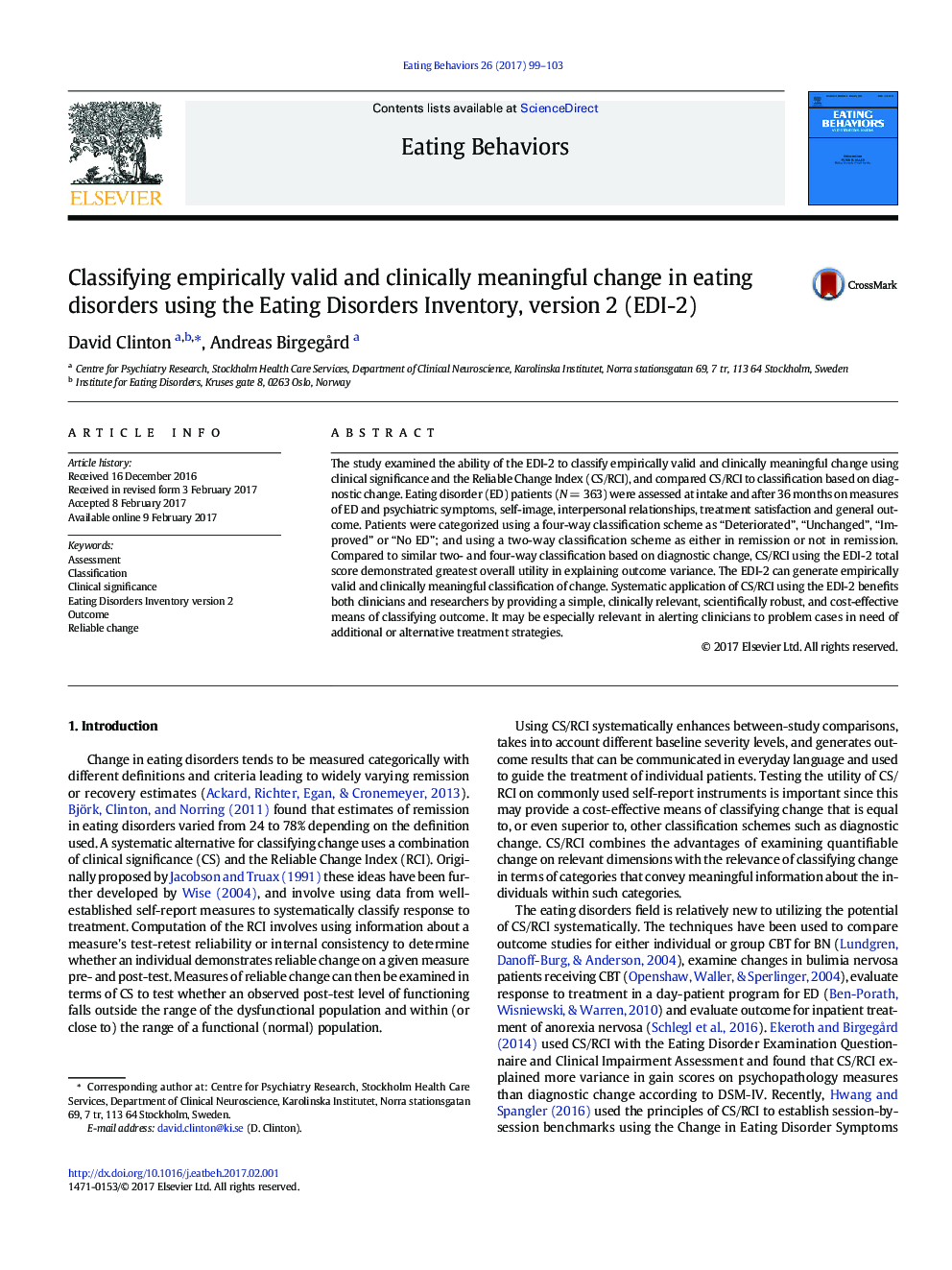| کد مقاله | کد نشریه | سال انتشار | مقاله انگلیسی | نسخه تمام متن |
|---|---|---|---|---|
| 5038801 | 1472877 | 2017 | 5 صفحه PDF | دانلود رایگان |

- Applying principles of CS/RCI to the EDI-2 generates empirically valid and clinically meaningful classification of change.
- Classification based on CS/RCI has considerable benefits compared to approaches using diagnostic change/remission.
- CS/RCI provides a simple, clinically relevant, scientifically robust, and cost-effective means of classifying outcome.
- The method can alert clinicians to problem cases in need of additional or alternative treatment strategies.
The study examined the ability of the EDI-2 to classify empirically valid and clinically meaningful change using clinical significance and the Reliable Change Index (CS/RCI), and compared CS/RCI to classification based on diagnostic change. Eating disorder (ED) patients (NÂ =Â 363) were assessed at intake and after 36Â months on measures of ED and psychiatric symptoms, self-image, interpersonal relationships, treatment satisfaction and general outcome. Patients were categorized using a four-way classification scheme as “Deteriorated”, “Unchanged”, “Improved” or “No ED”; and using a two-way classification scheme as either in remission or not in remission. Compared to similar two- and four-way classification based on diagnostic change, CS/RCI using the EDI-2 total score demonstrated greatest overall utility in explaining outcome variance. The EDI-2 can generate empirically valid and clinically meaningful classification of change. Systematic application of CS/RCI using the EDI-2 benefits both clinicians and researchers by providing a simple, clinically relevant, scientifically robust, and cost-effective means of classifying outcome. It may be especially relevant in alerting clinicians to problem cases in need of additional or alternative treatment strategies.
Journal: Eating Behaviors - Volume 26, August 2017, Pages 99-103